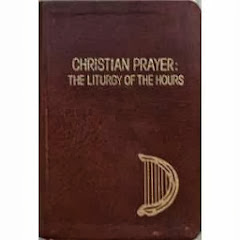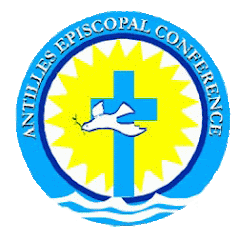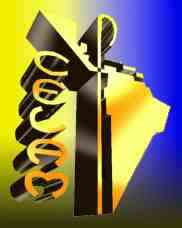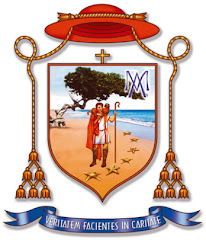
Lisbon, Portugal, May 11, 2010 / 02:11 pm (CNA/EWTN News).- During his apostolic visit to Portugal, the Holy Father presided over Mass in Lisbon's Palace Square on Tuesday evening. Despite negative media attention over sexual abuse that has dogged the Catholic Church in recent weeks, the Pope assured the crowd of 160,000 people that the “resurrection of Christ assures us that no adverse power will ever be able to destroy the Church.”
At the sun-filled open air Mass, a cheering throng welcomed Pope Benedict and the hundreds of clergy who led the procession to the altar. With Lisbon's Tagus River serving as a backdrop, local Cardinal Jose de la Cruz Policarpo presented the Holy Father with the gift of a crucifix featuring seafaring imagery and representing the identity of the country.
In his homily, the Pope centered his message on the words of Jesus in the Gospel of Matthew, where Christ told his disciples, “I am with you always to the close of the age.”
“These words of the risen Christ take on a particular significance in this city of Lisbon, the Pope noted, recalling that from the city “generations upon generations of Christians – bishops, priests, consecrated and lay persons, men and women, young and not so young – have journeyed forth in great numbers in obedience to the Lord’s call.”
The Holy Father praised the country for its missionary commitment, saying that Portugal “has gained a glorious place among the nations for the service rendered to the spreading of the faith: in all five continents there are local churches that owe their origin to Portuguese missionary activity.”
“Today, as you play your part in building up the European Community, you offer the contribution of your cultural and religious identity,” he said. “Indeed, just as Jesus Christ joined the disciples on the road to Emmaus, so today he walks with us in accordance with his promise: 'I am with you always, to the close of the age.'”
“We too have a real and personal experience of the risen Lord, even if it differs from that of the Apostles,” the Pope observed.
“In the living river of ecclesial Tradition, Christ is not two thousand years distant from us, but is really present among us: he gives us the Truth and he gives us the light which is our life and helps us find the path towards the future.”
But Christ's presence in the Church can be taken for granted, Pope Benedict warned. “Often we are anxiously preoccupied with the social, cultural and political consequences of the faith, taking for granted that faith is present, which unfortunately is less and less realistic,” he said. “Perhaps we have placed an excessive trust in ecclesial structures and programmes, in the distribution of powers and functions; but what will happen if salt loses its flavor?”
“In order for this not to happen,” the Pope said, “it is necessary to proclaim anew with vigor and joy the event of the death and resurrection of Christ, the heart of Christianity, the fulcrum and mainstay of our faith, the firm lever of our certainties, the strong wind that sweeps away all fear and indecision, all doubt and human calculation.”
“The resurrection of Christ assures us that no adverse power will ever be able to destroy the Church,” Pope Benedict underscored.
He then exhorted the faithful, saying “Never doubt his presence! Always seek the Lord Jesus, grow in friendship with him, receive him in Communion.”
“Learn to listen to his word and also to recognize him in the poor. Live your lives with joy and enthusiasm, sure of his presence and of his unconditional, generous friendship, faithful even to death on the cross,” the Pope urged.
“Bear witness to all of the joy that his strong yet gentle presence evokes, starting with your contemporaries,” he added.
“Tell them that it is beautiful to be a friend of Jesus and that it is well worth following him. With your enthusiasm, demonstrate that, among all the different ways of life that the world today seems to offer us – apparently all on the same level – the only way in which we find the true meaning of life and hence true and lasting joy, is by following Jesus.”
dinsdag 11 mei 2010
Christ assures us nothing will destroy the Church, Pope states
Posted by Rutzen Lucas at 11.5.10 0 comments
Fatima message shows Catholic Church is attacked by internal sins, Pope declares

Aboard the papal plane, May 11, 2010 / (CNA/EWTN News).-
Speaking aboard the papal plane on the way to Portugal, Pope Benedict XVI said the message of Fatima shows that attacks on the Pope and the Church also come from sins inside the Church. These internal attacks are seen in “a really terrifying way” in sexual abuse, he remarked while calling for penance and purification.
He made his comments to reporters while traveling to Portugal, the site of a 1917 Marian apparition near the town of Fatima. He was asked if the Fatima apparition’s predictions of times of trial for the Church could be applied to the sexual abuse crisis.
In the message of Fatima, Pope Benedict answered, we can discover that attacks on the Pope and the Church “come not only from the outside, but the suffering of the Church comes from inside the Church, from sins that exist inside the Church.”
“This we have always known, but today we see it in a really terrifying way. The biggest weight on the Church doesn’t come from the enemies outside but is born from sin inside the Church.
“And so the Church has a profound need to relearn penance, to accept purification, to learn on the one hand forgiveness but also the necessity of justice. And forgiveness does not substitute justice,” he said.
Pope Benedict added that Catholics need to relearn the “essentials” of conversion, prayer and penance.
During his visit to Portugal, the Pope will visit the shrine at the small village of Fatima.
When the Virgin Mary appeared to three shepherd children at Fatima in 1917, she imparted to the seers messages about the violent trials that would afflict the world: war, starvation, and persecution of the Church and the Pope.
The first two prophetic “secrets” revealed at Fatima included a vision of hell, the request for an ardent devotion to the Immaculate Heart of Mary, and the prediction of the immense damage that Russia would do to humanity by abandoning the Christian faith.
The third “secret,” not revealed to the public until the year 2000, referred to the persecutions that humanity would undergo.
“The good will be martyred; the Holy Father will have much to suffer; various nations will be annihilated,” the Virgin Mary said, according to the seers.
As Cardinal Joseph Ratzinger, Prefect of the Congregation for the Doctrine of the Faith, Pope Benedict authored a theological commentary on the message of Fatima in 2000.
He wrote that the message of the apparition is “the exhortation to prayer as the path of ‘salvation for souls’ and, likewise, the summons to penance and conversion.”
Posted by Rutzen Lucas at 11.5.10 0 comments
Pope says he brings wisdom and mission to Portugal

Lisbon, Portugal, May 11, 2010 / (CNA/EWTN News).-
Pope Benedict XVI departed from Rome this morning and arrived at the Portela International Airport in Lisbon, Portugal, commencing the 15th foreign visit of his pontificate. Speaking at the airport, the Holy Father announced that the goal of his visit is to share wisdom and remind Christians of their mission.
The Holy Father was greeted when he arrived at the airport by president of the Republic of Portugal Anibal Cavaco Silva and by the Patriarch of Portugal, Cardinal Jose de la Cruz Policarpo, as well as other civil authorities and members of the Portuguese episcopate.
In an address following his arrival, the Pope stated that he comes “as a pilgrim to Our Lady of Fatima, invested from on high with the mission of confirming my brothers and sisters as they advance on their own pilgrimage towards heaven.”
Referring to the apparitions of the Virgin Mary at Fatima, Pope Benedict said, “As for the event that took place 93 years ago, when heaven itself was opened over Portugal – like a window of hope that God opens when man closes the door to him – in order to refashion, within the human family, the bonds of fraternal solidarity based on the mutual recognition of the one Father, this was a loving design from God; it does not depend on the Pope, nor on any other ecclesial authority: 'It was not the Church that imposed Fatima,' as Cardinal Manuel Cerejeira of blessed memory used to say, 'but it was Fatima that imposed itself on the Church'.”
“The Virgin Mary,” the Holy Father explained, “came from heaven to remind us of Gospel truths that constitute for humanity – so lacking in love and without hope for salvation – the source of hope.”
“The aim of this visit,” he announced, “which I am now beginning under the sign of hope, is to be a proposal of wisdom and of mission.” This wisdom and mission, he said, finds its fulfillment in Jesus Christ.
“An insightful vision of life and of the world leads to a just ordering of society,” the Pontiff said, extending his reflection to the societal level. “Situated within history, the Church is open to collaborate with those who do not marginalize essential consideration for the human significance of life, or reduce it to the private sphere.”
“This does not mean an ethical confrontation between a secular system and a religious system,” he noted, “rather it concerns the question about the meaning that we give to our freedom. The distinguishing feature is the value attributed to the problem of meaning and its implication in public life.”
The Pope then spoke the of the foundation of a republic in Portugal 100 years ago, saying that “distinguishing between Church and State opened a new space of freedom for the Church,” within “a cultural and ecclesial context deeply marked by rapid changes.”
“Living in a plurality of value systems and ethical structures makes it necessary to journey to the core of one's own self and to the nucleus of Christianity in order to reinforce the quality of our witness unto sanctity, and to discover the paths of the mission that lead even to the radical choice of martyrdom.”
After his address, the Holy Father went to the apostolic nunciature, where he traveled to the “Mosterio dos Jeronimo,” a 16th century monastery which was the site for the signing of the Treaty of Lisbon.
The Pontiff then made a brief visit to the ancient church of “Santa Maria de Belem,” where he prayed before the Blessed Sacrament and visited the cloister of the monastery.
Later, the Holy Father was taken, via the popemobile, to the “Palacio de Belem,” also built in the 16th century, where the president currently resides. After paying a courtesy visit to the President Cavaco Silva and meeting with him privately, the Pope signed the visitors' book and greeted member's of the president's family. Before having lunch at the apostolic nunciature, the Holy Father spoke to staff members of the presidential palace.
Posted by Rutzen Lucas at 11.5.10 0 comments
zaterdag 8 mei 2010
Celibacy source of grace, not abuse, says head of Belgian Church

Rome, Italy, May 7, 2010 / (CNA/EWTN News).-
Speaking about the current climate within the Catholic Church of Belgium to the Vatican’s L’Osservatore Romano newspaper, Archbishop Andre-Mutien Joseph Leonard highlighted the importance of formation for the priesthood. Celibacy, he underlined, is not the cause of sexual abuses and greater focus needs to be put on priestly formation to avoid future tragedy.
The primate of the Belgian Church spoke to the Vatican’s semi-official newspaper while in Rome for the Belgian bishops’ “ad Limina” visit to the Holy See.
In response to a question about whether the cases of sexual abuse that have come to light in the Church are due to faults in the process of forming priests, the archbishop said “investigating the causes is always difficult.” “However,” he added, “I’m convinced that it is not correct to trace certain deviant attitudes back to the celibacy of priests.”
Archbishop Leonard pointed out that no one calls marriage a “source of mental imbalance” although the majority of cases of sexual abuse of minors take place in the home.
The personal development of the individual is the problem, he said, and it’s an additional reason to put more focus on the formation of priests, placing importance on the “affective equilibrium” of candidates.
Proposing specific actions to be taken to avoid such tragedies in the future, Archbishop Leonard said more attention must be given to potential priests during their time of discernment and in the first few years of formation. The Belgian Church intends “to reinforce” the personnel that accompany seminarians “to understand their nature, personality and balance more deeply,” he added.
“But, I repeat, celibacy is not a source of imbalance for the priest; rather it’s a source of grace.”
The Bishops of Belgium will all meet in audience with Pope Benedict XVI on Saturday to conclude their “ad Limina” visit to the Holy See.
Posted by Rutzen Lucas at 8.5.10 0 comments
vrijdag 7 mei 2010
Twenty-five years of priestly ordination
It All Happened In 1985
Wednesday, April 28, 2010 was the occasion of the celebration of a beautiful liturgy marking the Silver Jubilee of priestly ordination of the largest single group of Caribbean men, in the history of the institution, to graduate from the Regional Seminary of St. John Vianney and the Uganda Martyrs.
It all happened in 1985. Over a period from June 30th to August 18th, ten (10) men from the region were ordained to the presbyterate. This includes Bishop Francis Alleyne, OSB (Trinidad & Tobago), Bishop Gabriel Malzaire (St. Lucia) Fr. Karel Choennie (Suriname), Fr. Stephen Geofroy (Trinidad & Tobago), Fr. Leroy Hopkin, OP (Grenada), Fr. John Persaud (Guyana), Msgr. Michael Stewart (St. Vincent & the Grenadines), Fr. Celsus Auguiste (Dominica), Fr. Charles Martin (Dominica) and Fr. Ron Yeemon (Trinidad & Tobago). The latter three were unable to join their confreres for the Jubilee celebration. Present with us, however, was Fr. Eddy Birmingham, SJ, the present Dean of Studies at the Regional Seminary, who also celebrates 25 years of priesthood this year. Fr. George Williams (St. Lucia), who began his formation with the same group but who was ordained five years ago, likewise, was among those celebrating with the jubilarians.
The Eucharist was presided over by the Ordinary of Port of Spain, His Grace, Archbishop Edward Gilbert, CSSR, and the Apostolic Nuncio, Archbishop Thomas Gullickson, was the homilist. In his homily Archbishop Gullickson reminded the congregation that “Priesthood is not a point of arrival, a decoration for somebody’s lapel; it is a point of departure …. Priesthood is a life-long adventure and although we are never ‘home free’ this side of the grave, there is certainly a sense in which after 25 years we can rejoice in the yield of the harvest.” On this special occasion it seemed most fitting for him to add: “We thank the Lord for these men and all the good which has come to the Church in the region at their hands”, but “in well-founded hope, we pray that the next 25 years will be even more fruitful to the greater honor and glory of God.” The Nuncio assured the seven men and the congregation that “Life for a priest only gets better as you enter deeper into the mystery of fulfilling God’s Will and of cooperating with the grace bestowed.”
Using the occasion to encourage a greater awareness of the value of local vocations, the Nuncio stated: “Fair or not, I think we priests, completed as we are by Him in whom we live and move and have our being, have even more reason to give thanks. Our gratitude, profound gratitude for the representational role bestowed upon us in union with Christ, is certainly mysterious but not esoteric. Believing folks have appreciation for what this means and how important priesthood is both for the Church and for the life of the world. If parents of small children don’t dream about a son of theirs becoming a priest they don’t have the faith; they have somehow missed out on where joy lies this side of heaven.” And how infinitely true is this last sentence!
The Jubilee celebration served as a great occasion for what was a short reunion of clergy, religious and laity alike. Some were fellow students, present and past lecturers, and also friends, benefactors and well-wishers of the seminary.
After a sumptuous dinner, the former Rector, Fr. Henry Charles, under whose leadership all the jubilarians were formed, and Dr. Everard Johnston, who has been a lecturer in various subjects areas throughout the formation period of the ten men and still a member of the Seminary faculty, expressed their pride in the Class of 1985, and shared sentiments of joy for being part of that journey.
It was then the turn of each jubilarian to share some thoughts on his time spent at the Regional Seminary and his 25 years of priestly journey. These inputs were reminiscent of an enjoyable period of study and formation that was made possible by the many people who contributed to its success. The reflections featured not only the lecturers and formators, but also the many friends of the seminary, the individuals and families in Trinidad who opened their homes to the students, especially those from the various islands and the Guyanas, the kitchen and other ancillary staff who played a significant role in keeping them healthy, the many friends who cared for the well-being of the seminary, and the religious and lay students who brought an added dimension to the theological discourse. The jubilarians spoke of the comradry in the group, the prayer life, the social interaction, the engaging lecturers, the lively liturgies, etc, that characterized that period in their life.
Posted by Rutzen Lucas at 7.5.10 0 comments
AEC Judical Vicars Meet
From Tuesday, April 20 to Thursday 22, Judicial Vicars of the Antilles Episcopal Conference (AEC) and their associates, met in convention at the Regional Seminary at Mount St Benedict, to address matters dealing with marriage issues on which they are called upon to adjudicate in their various jurisdictions.
Discussions centered on issues like grounds for the nullity of marriages; the effects of culture on marriage validity; the machismo syndrome of the Caribbean male and the differences and benefits between diocesan and regional tribunals.
Following the convention, as is the norm, a full report on the deliberations was sent to the AEC.
Fr Joseph Harris, the judicial vicar (judge) of the Archdiocese of Port of Spain, told the Catholic News the issue which generated the most animated discussion was the effects of the various local and varied cultures of the Caribbean, which impacted seriously on some unions, one of them being obeah.
He explained also how the way in which the law was written created a cultural disconnect, which in turn posed difficulty at times.
Fr Joe said, “The law is written in European category, which at times does not fit into the Caribbean category. While most of the judges, because of education, operate very easily within a technological mindset, the people whom they serve, very often do not operate in those areas.”
Providing an example, he added, “A technological mindset does not deal with obeah, so a skill the Judicial Vicars (judges) have to learn is how to translate what they hear into the categories given to them in the Code (Canon Law).”
While the convention was planned and executed by the Metropolitan Tribunal of the Archdiocese of Port of Spain, Professor Augustine Mendonca, Professor Emeritus of St Paul University in Ottawa, Canada, masterfully guided its deliberations over the three days.
Some two dozen judicial vicars and their associates attended the convention, but on the second day that number jumped to 40 plus when local persons involved in the marriage ministry were invited to participate in the discussions.
On the last day of the convention elections were held and Fr Joseph Harris was elected as the new president of the Canon Law Society replacing Monsignor Michael Lewis of Jamaica. In addition to Fr Harris most of the new executive is from the Archdiocese of Port of Spain – Cherryl Mohamed, Vice Chancellor of the Archdiocese is the vice president and Barbara Salazar and Bernadette Salandy of the Marriage Tribunal are treasurer and secretary respectively. Other members of the new executive are former president Msgr Michael Lewis and consultors Msgr Michael Palud of Jamaica and Dominic Jeremiah of Grenada. The latter is principal of Presentation College, St George’s. – Vernon Khelawan
Catholic News
Sunday May 2nd, 2010
Posted by Rutzen Lucas at 7.5.10 0 comments
donderdag 6 mei 2010
Swiss Guard welcomes 30 new members to elite force

Vatican City, May 6, 2010 / (CNA/EWTN News).-
The Pontifical Swiss Guard swore in 30 new recruits during a ceremony on an overcast Thursday evening at the Vatican. The event also commemorated the 147 guards who died defending the Pope during the Sack of Rome in 1527.
Gathering at 5 p.m. in the San Damaso courtyard under the threat of rain, the Swiss Guard held its annual swearing-in ceremony. Vatican Radio reported on Thursday that the 30 new “halberdiers” who enlisted in the last 12 months made their final vows during the ceremony. As part of the ritual, the new recruits lined up and raised three fingers in the air – a traditional sign of oath to the corps.
On Thursday morning, the guard, their families and friends attended a special Mass in St. Peter’s Basilica, which was presided over by Cardinal Tarcisio Bertone, the Vatican's Secretary of State.
“The Pontifical Swiss Guard is characterized by the willingness of its members to place themselves in service of the Supreme Pontiff, to provide for the particular care of His person,” Cardinal Bertone said at Mass earlier in the day. This willingness, added the prelate, is something that “you – dear Swiss Guards – have expressed as Christians, that is, motivated by love for Christ and for the Church.”
“For this we are gathered here in the Eucharistic celebration: to pronounce our thanks to the Lord for your generosity.”
“Yours, dear friends of the Swiss Guard, is a skilled and appreciated service, that demands dedication and seriousness,” Cardinal Bertone said. “Being Swiss Guards means always adhering without reservation to Christ and the Church, with the willingness to spend every day of your life for this noble mission.”
The Swiss Guard is an elite force charged throughout the centuries with the task of safeguarding the Pope. The recruits, per guard requirements, must be between 19 and 30 years old, faithful Roman Catholics and Swiss citizens. Guardsmen commit to serving a minimum of 25 months, after which they can chose to leave or be promoted to sergeant.
Among those present at this year's swearing-in ceremony were Doris Leuthard, president of the Swiss Confederation, and Peter Stutz, chief-of-staff, who represented the Swiss army. Also participating as guests of honor was the council of the Canton of San Gallen.
Posted by Rutzen Lucas at 6.5.10 0 comments
Marriage is instrument of salvation for society, declares Benedict XVI
Vatican City, May 5, 2010 / (CNA/EWTN News).-
Welcoming future participants in the Congress on the Family, which will take place in Jonkoping, Sweden from May 14-16, the Holy Father taught on love and marriage on Wednesday. Through the love present in marriage, he said, we are given an idea of the love that awaits us in Heaven.
The Pope’s words on marriage came during his English-language greeting of the general audience in St. Peter’s Square.
The message of the congress to the world is one of joy, said the Holy Father, “because God’s gift to us of marriage and family life enables us to experience something of the infinite love that unites the three divine persons – Father, Son and Holy Spirit.”
Noting that “human beings, made in the image and likeness of God, are made for love,” he proposed that through the love between spouses, parents and children and siblings “we are offered a foretaste of the boundless love that awaits us in the life to come.
“Marriage is truly an instrument of salvation, not only for married people but for the whole of society,” he underscored.
He went on to explain that “like any worthwhile goal,” it is demanding, challenging and calls us to sacrifice for the good of another while also inviting us to “nurture and protect the gift of new life.”
The stable family, the Holy Father added, is the “first and most fundamental school for virtuous living and the qualities of good citizenship.”
The Diocese of Sweden’s congress aims to shed light on “Love and Life” through the three days of prayer, discussion and addresses. The talks will focus on God’s plan for men and women in marriage, the rights of children and social changes and challenges for Christian families today. Programs for children and youth have also been organized for the congress.
Pope Benedict concluded his message to participants by encouraging all people to “promote a proper understanding and appreciation of the inestimable good that marriage and family life offer to human society.”
Posted by Rutzen Lucas at 6.5.10 0 comments
Priests make God’s saving work present on earth, teaches Pope

Vatican City, May 5, 2010 / (CNA/EWTN News).-
“As ministers of Christ, priests bring us into life-giving contact with the mystery of God’s holiness,” the Pope said during the general audience on Wednesday. It is through their celebration of the sacraments, he taught, that they make Christ’s sanctifying work “present and effective” in the world.
Pope Benedict XVI appeared to be in good spirits as he addressed the approximately 15,000 people gathered in St. Peter’s Square on an overcast morning, punctuated periodically by drops of rain.
After speaking briefly of the Holy Shroud, which he said "can nourish and feed the faith and reinvigorate Christian piety," the Pope returned to the figure of the priest for the third time in his Easter season series of catecheses. This time, he spoke on the numerous tasks of the priest, especially his ministry of sanctification.
“Holiness, as we know, is proper to God, who is himself absolute truth, goodness, love and beauty,” he said, noting that it is priests, as ministers of Christ, who “bring us into life-giving contact with the mystery of God’s holiness.”
By proclaiming the Gospel and celebrating the sacraments, the priest provides us with the possibility to “approach God and to be transformed gradually in the divine image.” Particularly through the Eucharist and Confession, the Holy Father taught, priests make Christ’s sanctifying work “present and effective” in the world.
Moreover, it is through the sacraments that they “sanctify the faithful and are themselves sanctified and configured ever more closely to Christ,” he underlined.
Speaking directly to priests, Benedict XVI said that just as it is important to teach and help the faithful to understand the sacraments' value, it is also necessary that they be "willing, generous and attentive in giving the faithful the treasures of grace that God has placed in our hands, treasures of which we are not masters but custodians and administrators."
The Holy Father concluded his catechesis by asking for prayers for priests and their “ministry of sanctification,” that they be “true shepherds according to God’s heart.” He also exhorted the faithful to realize the great gift that they are for the Church and the world.
This year, by decree of the Pope, the Church celebrates the Year for Priests, inaugurated on the Solemnity of the Most Sacred Heart of Jesus June 19, 2009 and to close on June 11, 2010. The stated purpose of the Year is to “deepen the commitment of all priests to interior renewal for the sake of a stronger and more incisive witness to the Gospel in today’s world.”
Posted by Rutzen Lucas at 6.5.10 0 comments











